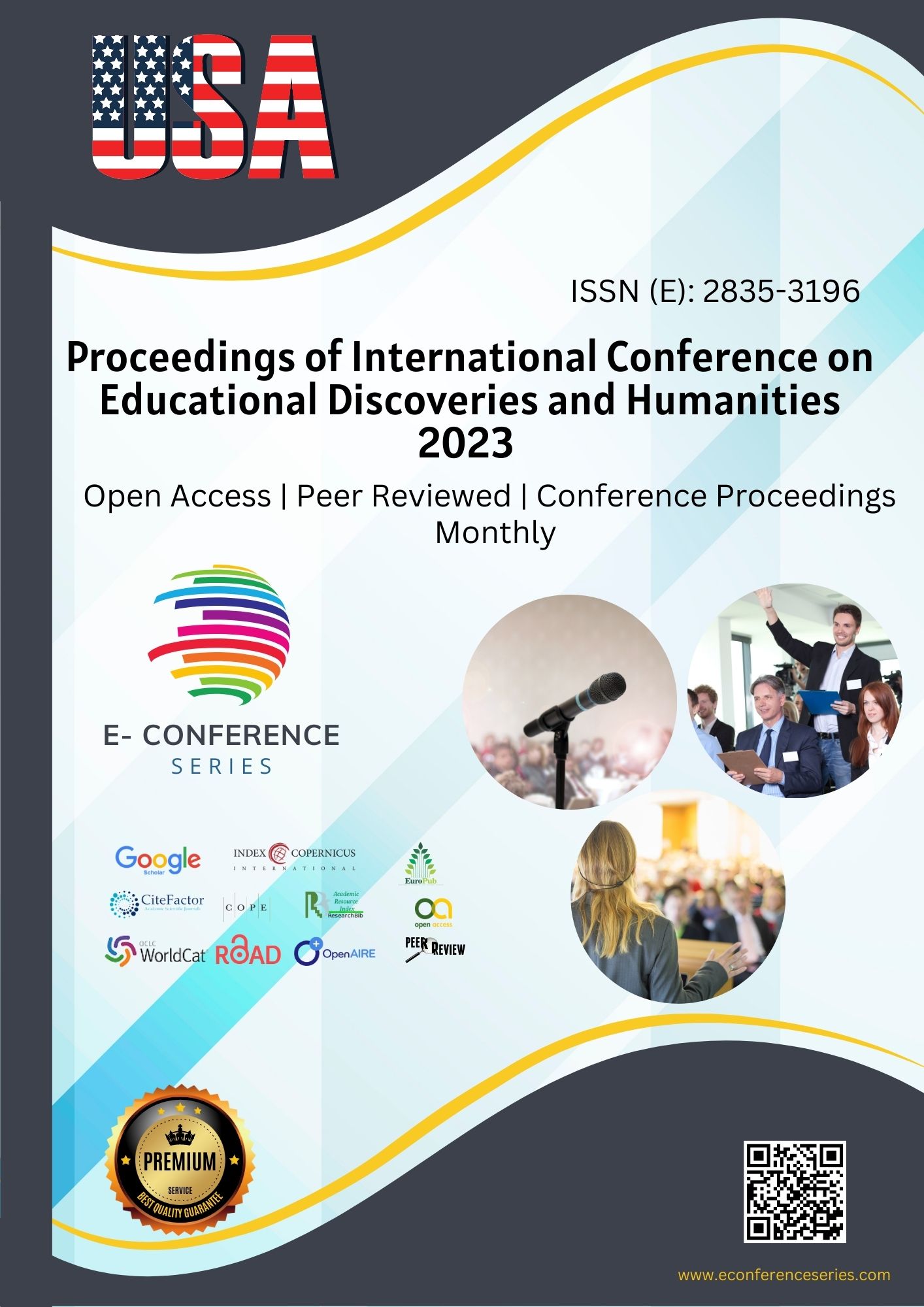LEXICAL LACUNARITY AND ITS REFLECTION IN TRANSLATION
Keywords:
lacuna, term, language, scientific, linguistics.Abstract
Today, scientists of the world are increasingly interested in the study of lacunae. The term lacuna has gained a strong place in Uzbek linguistics and translation studies. As a result, a special field of "lacunology" was created in linguistics. This article is devoted to the learning process of lacunae in the language.
References
Fatkhiddinova I. F. The phenomenon of lacuna in linguistic and cultural studies//OBRAZOVANIE I NAUKA V XXI VEKE. Vypusk #24 (volume 3) (March, 2022).
Gak V.G. Comparative typology of the French and Russian languages. - L.: Enlightenment. Leningrad. department, 1977. - 300 p.
Zhelvis V.I. On the question of the nature of Russian and English gaps // National and cultural specifics of speech behavior. - M.: Nauka, 1977. - p. 136 - 146.
Zhelvis V.I., Markovina I.Yu. Experience of systematization of English-Russian lacunae// Research of problems of speech communication. - M.: Nauka, 1979. - 214 p.
Ogurtsova O.A. To the problem of lacunarity // Functional features of linguistic units: Sat. Proceedings of the Kuban University. Issue 3. - Krasnodar: Publishing House of the Kuban University., 1979. - p. 77 - 83.
Bogdanov V.V. Silence as a zero speech sign and its role in verbal communication // Linguistic communication and its units. – Kalining, 1986.
Downloads
Published
Issue
Section
License

This work is licensed under a Creative Commons Attribution-NonCommercial 4.0 International License.








